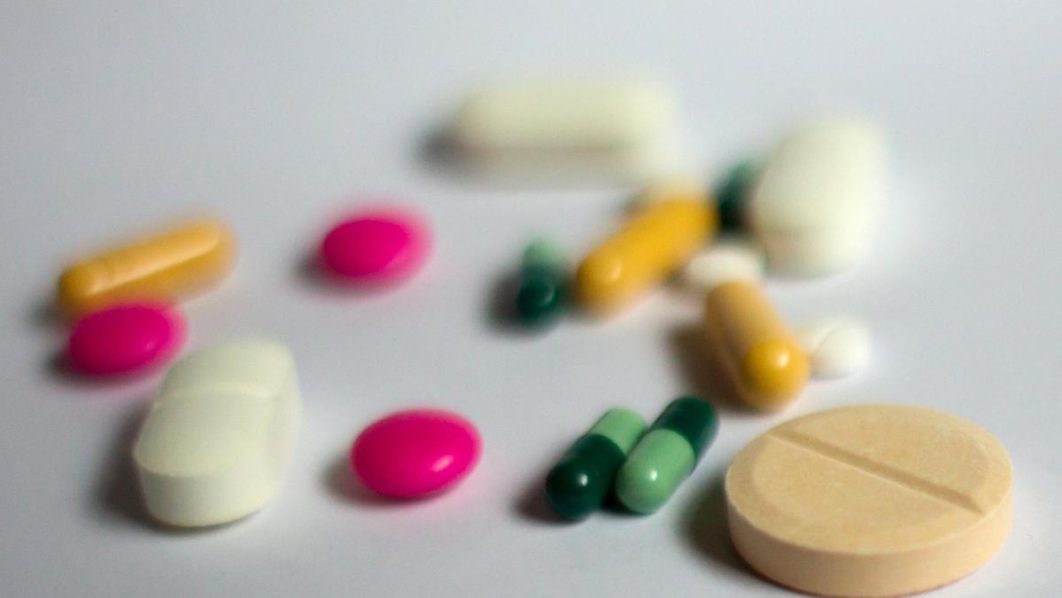
Abuse of antibiotic drugs and its attendant resistance has hit a new record with no fewer than 64,500 Nigerians killed by related causes yearly.
With over 1.2 million suffering from antimicrobial resistance now in Nigeria, stakeholders believe that an emergency needs to be declared on the overuse and misuse of antibiotics nationwide.
Specifically, and in commemoration of World Antimicrobial Resistance Week, health experts and researchers have called for stiffer regulations of activities of patent and proprietary medicine vendors selling prescription drugs like antibiotics over-the-counter and worsening their abuse.
They stressed that there is a need to develop antibiotic guidelines to educate prescribers on antimicrobial stewardship, encourage targeted prescription to reduce the high rate of antibiotic prescription and promote appropriate use of antibiotics in hospitals.
Researchers have observed an alarming resistance trend in pathogens like Pseudomonas aeruginosa, Klebsiella pneumoniae, Proteus mirabilis, Plasmodium falciparum, and Mycobacterium tuberculosis as well as Escherichia coli, and Salmonella typhi.
The resistance complicates the treatment of diseases, including malaria and tuberculosis, which are prevalent in the region and straining the healthcare system through prolonged hospital stays and high cost of care.
Antimicrobial resistance to drugs occurs when bacteria, viruses, fungi, and parasites stop responding to relevant medications, worsening the risks of disease transmission, serious sickness, disability, and death.
Though a global medical concern, local findings showed that the rate of resistance has continued to grow by over 10 per cent yearly.
Professor of Medical Microbiology and Immunology, Boaz Adegboro, said that an estimated 1.2 million cases of AMR are now reported yearly, accompanied by yearly deaths of 64,500, and one in every five deaths is a child under five years.
The current figure almost doubles the estimates recorded five years ago. It is also a significant fraction of the 700,000-plus deaths and five million resistance-related cases globally, according to the World Health Organisation (WHO).
Adegboro added that antibiotics’ misuse exposes about 0.06 per cent of the Nigerian population to AMR and discourages over-the-counter dispensing of antibiotics to aid the fight against infectious diseases like malaria and tuberculosis.
He recommended the use of combination therapy to treat severe infections and emphasised the need for each health facility to have an essential drug list, which must be strictly adhered to, followed by periodic review of the list when necessary.
Indeed, over-the-counter purchase of prescription drugs, mainly perpetrated by unregistered vendors, is a major concern for practitioners.
Experts have raised alarm that despite laws against over-the-counter sales of antibiotics, they are widely available in markets and unauthorised outlets as a recent study shows that 86.5 per cent of Nigerians use non-prescribed antibiotics, increasing self-medication practices and exposing them to counterfeit drugs.
Pharmaceutical Society of Nigeria (PSN) estimated over two million unregistered pharmaceutical outlets nationwide.
The PSN President, Prof. Cyril Usifoh, lamented that the country was becoming a fertile ground for fake and substandard drug production due to the large number of such locations where medicinal drugs are dispensed and sold.
“The PSN estimates that there are over 25,000 registered pharmacies and patent medicine shops in Nigeria, but this number pales in comparison to the estimated two million unregistered premises. Many of these unregistered premises are operating illegally, without any regulatory oversight or adherence to safety and quality standards,” he said.
Director of Programme, Nigeria Academy of Pharmacy and CEO, Merit Healthcare Limited, Lolu Ojo, reckoned that self-medication is a significant contributor to the Antimicrobial Resistance (AMR) problem in Nigeria.
Ojo explained that without practitioners’ prescription, there is often misuse as patients could take incorrect dosage, incomplete treatment or make use of leftover antibiotics.
The pharmacist added that the practice is high in Nigeria, particularly among those with limited access to healthcare services and accelerating AMR, making infections harder to treat.
“This behavioural pattern is not only harmful to individuals but also contributes to the spread of antibiotic-resistant bacteria,” he said.
Ojo, a Fellow of the Pharmaceutical Council of Nigeria (FPSN), said that although Nigeria has laws that forbid the sale and distribution of antibiotics in the open market. However, the lack of adequate enforcement exacerbates the problem.
He added that there is an urgent need for enforcement Agencies like the National Agency for Food and Drug Administration and Control (NAFDAC) to strengthen their capability to cope with the huge task.
Besides the abuse of antibiotics in humans, health practitioners also raised concerns about substandard veterinary practices, and misuse of antibiotics in livestock farming, compounded by inadequate education of livestock farmers, lack of adherence to withdrawal periods for veterinary drugs, and poor regulatory enforcement in livestock farming.
Researchers told The Guardian that farmers frequently administer antibiotics improperly, leading to drug residues in meat, eggs, and milk consumed by humans, which introduces antibiotic-resistant bacteria into the human body when consumed, exacerbating health and economic burdens across the country.
They raised the alarm that besides the urgency for increased public awareness and better livestock farmers’ education, the government must take a tougher and more effective stance on enforcing existing regulations and control of antibiotics.
Speaking on livestock farming, a former state chairman of the Nigerian Veterinary Medical Association, Mobolaji Alao said widespread mismanagement of livestock antibiotics fuels the health crisis in Nigeria.
He attributed these to low levels of education among many livestock farmers, which leaves them unaware of proper animal health management practices.
He said: “When livestock, such as poultry, fall ill, farmers often purchase antibiotics from veterinary pharmacies without proper prescriptions. These drugs are frequently used inconsistently, with treatment often being stopped as soon as symptoms improve, rather than completing the prescribed dosage. This misuse has been a significant factor in the development of antibiotic-resistant bacteria, posing serious risks to both animal and human health.”
Alao highlighted the prevalence of counterfeit and substandard veterinary drugs in Nigeria as another critical issue contributing to antimicrobial resistance.
He blamed weak regulation and insufficient surveillance by authorities for the widespread availability of ineffective products that fail to provide therapeutic doses.
He, however, said that regulatory bodies face challenges monitoring the nearly 15 million livestock farmers nationwide, as well as the numerous veterinary pharmacies and drug production facilities, due to inadequate manpower and resources.
Explaining the risks posed to humans through the consumption of food products, the veterinarian stated that when farmers fail to observe withdrawal periods, drug residues which remain in these products (like meat, eggs, and milk) are consumed by humans, exposing them to sub-therapeutic levels of antibiotics.
He warned that this exposure allows bacteria in the human body to develop resistance, rendering common antibiotics ineffective in treating infections.
“Our farmers do not adhere to this withdrawal period regulation or directive. Aside from the fact that there is resistance being built up in the animal, the same resistance is being transferred also to the human being who consumes these products,” he said.
To address the crisis, Alao recommended several measures, including public awareness campaigns to educate farmers and the public about the dangers of antibiotic misuse and the importance of withdrawal periods.
He called for increased funding and manpower for regulatory agencies to improve the monitoring of drug production, distribution, and use.
Additionally, he suggested providing economic incentives to offset losses incurred during withdrawal periods and implementing training programs to educate farmers on proper livestock health management.
According to WHO, resistance to antimicrobial medicines leads to limited treatment options, extended hospital stays, constant medication, prolonged loss of income, medical debt, poverty, family loss, and grief and these burdens keep adding up and threatening the global economic future.
Statistics project an estimated global annual cost of up to $3.4 trillion by 2030 and 28 million people pushed into poverty by 2050, however, WHO reports that adequate use of vaccines could reduce antibiotic use by 2.5 billion doses yearly.
According to the report, vaccines are an essential part of the response to reduce AMR as they prevent infections, reduce the overuse of antimicrobials as well as slow the emergence and spread of drug-resistant pathogens.
The report also analysed the impact of already licensed vaccines and those in various stages of development. It highlighted how those potential vaccines could significantly reduce substantial economic costs of AMR globally.
WHO Director-General, Dr Tedros Ghebreyesusm, said the irony of AMR is that it’s driven by the inappropriate use of antibiotics, and yet a large number of people also die because they can’t access the medicines at all. “Addressing AMR therefore means increasing access for those who need them, while preventing the overuse and misuse that drives antimicrobial resistance,” he said.






